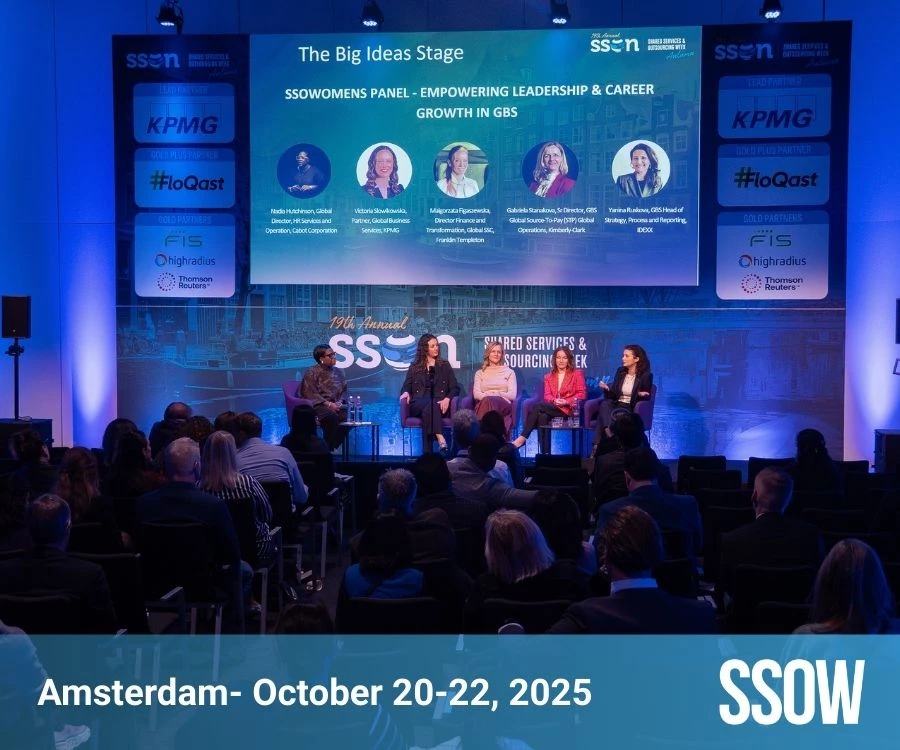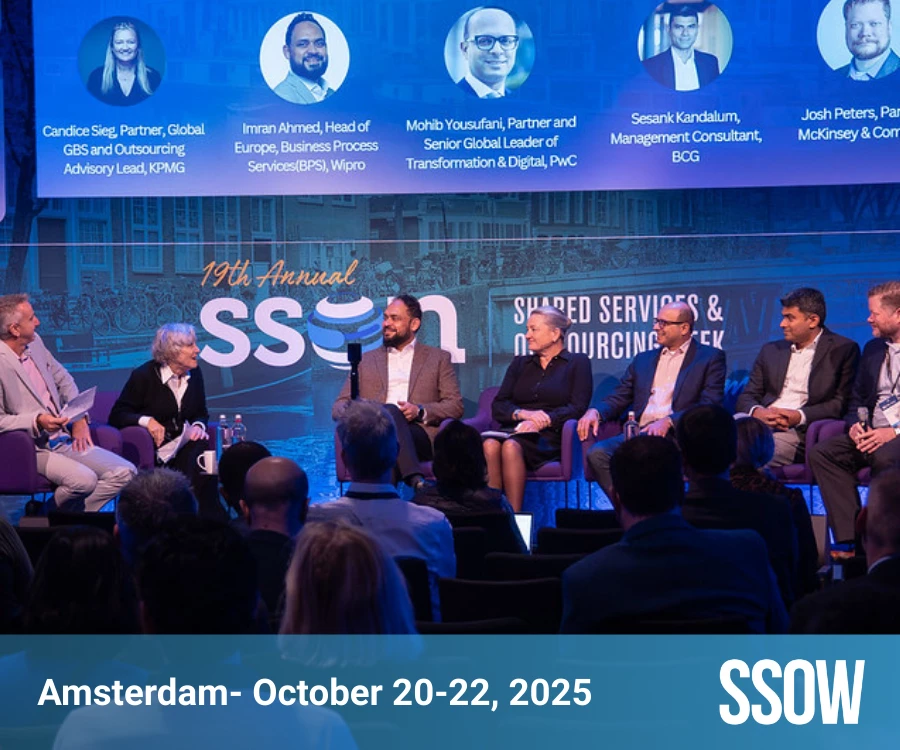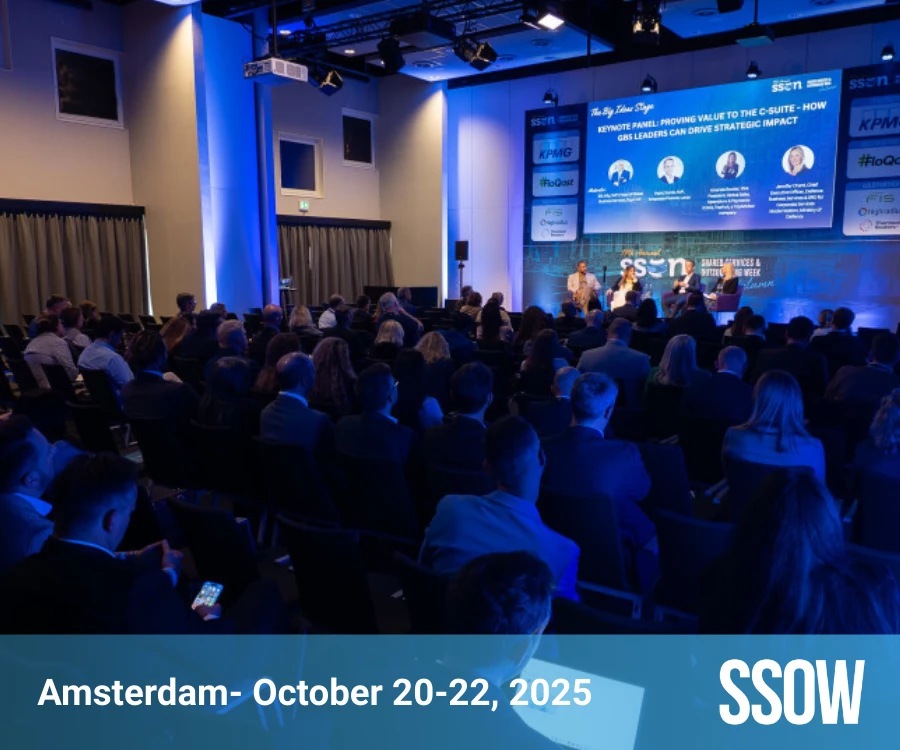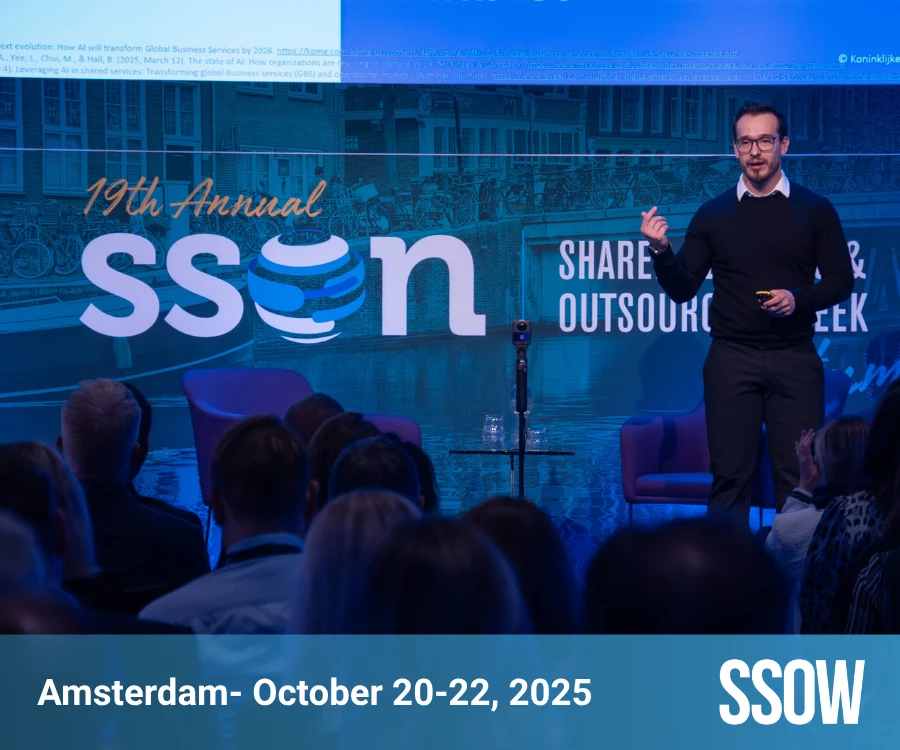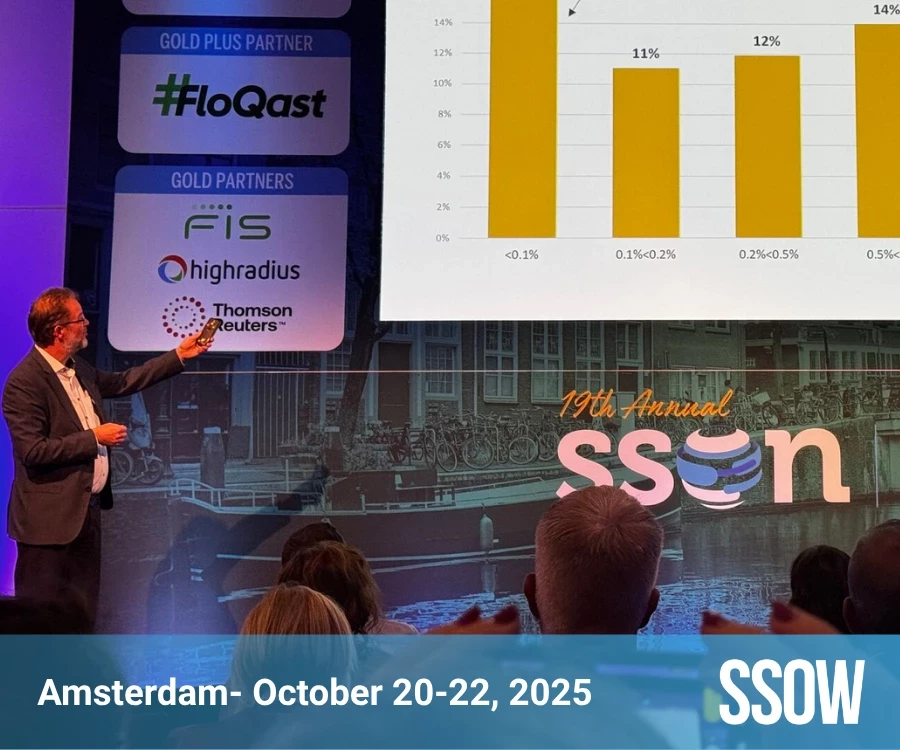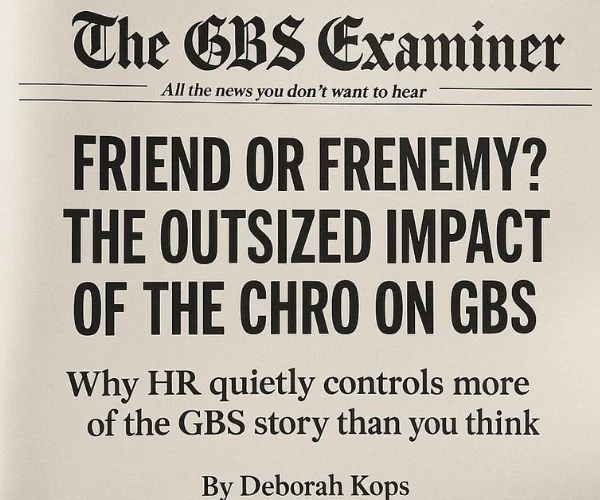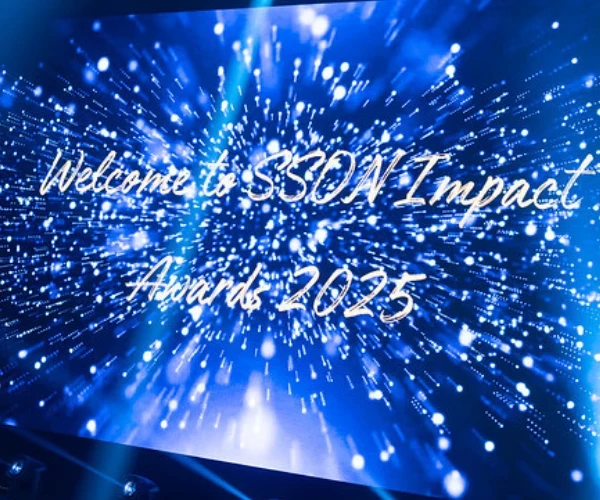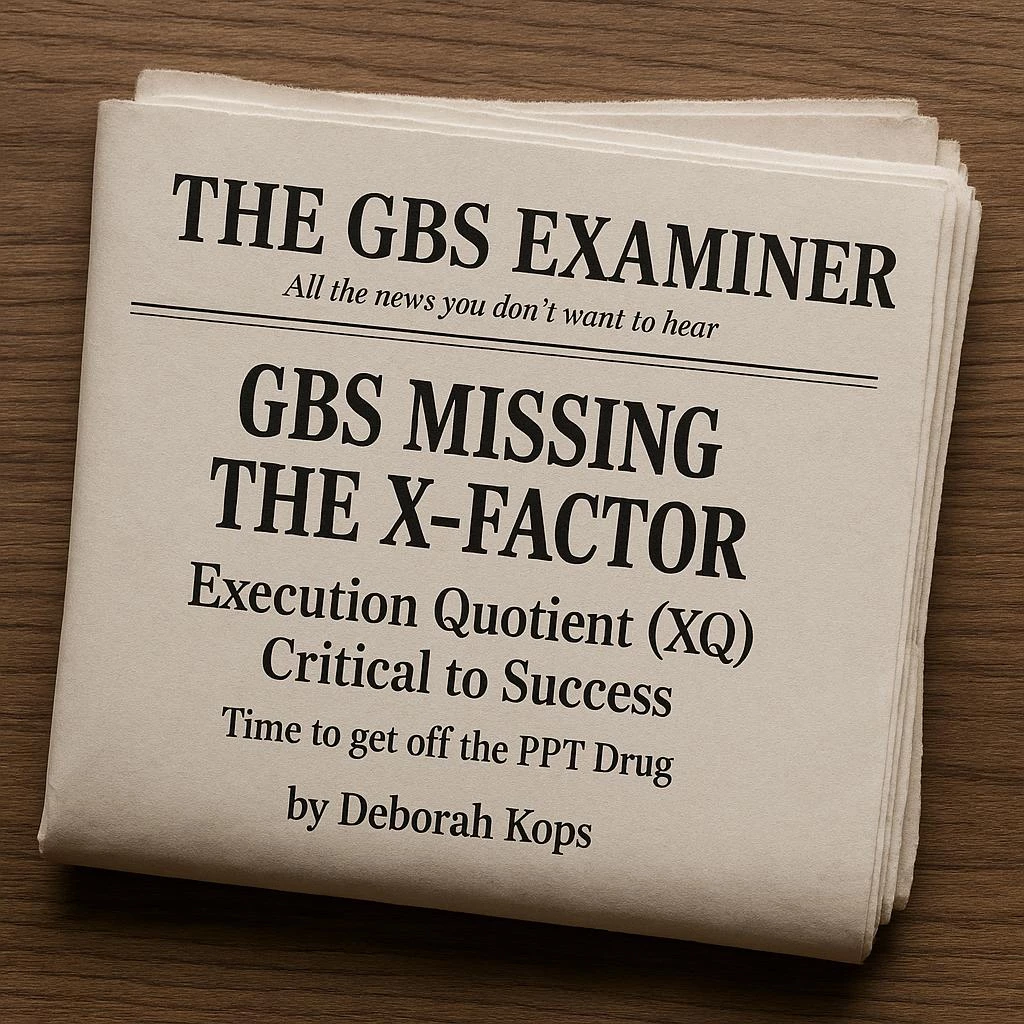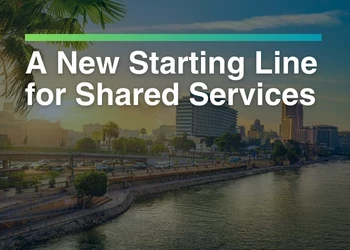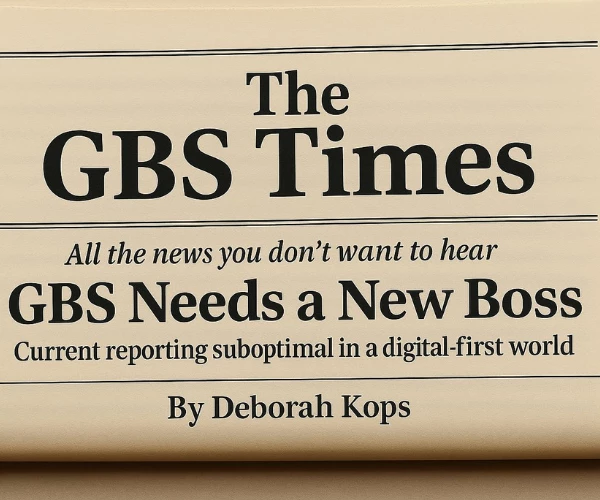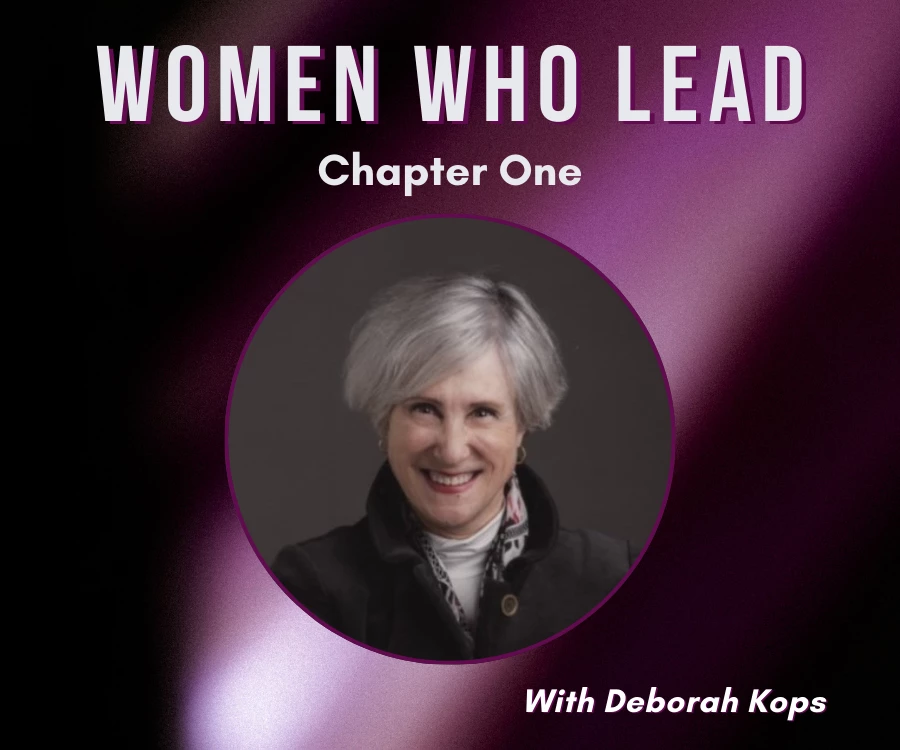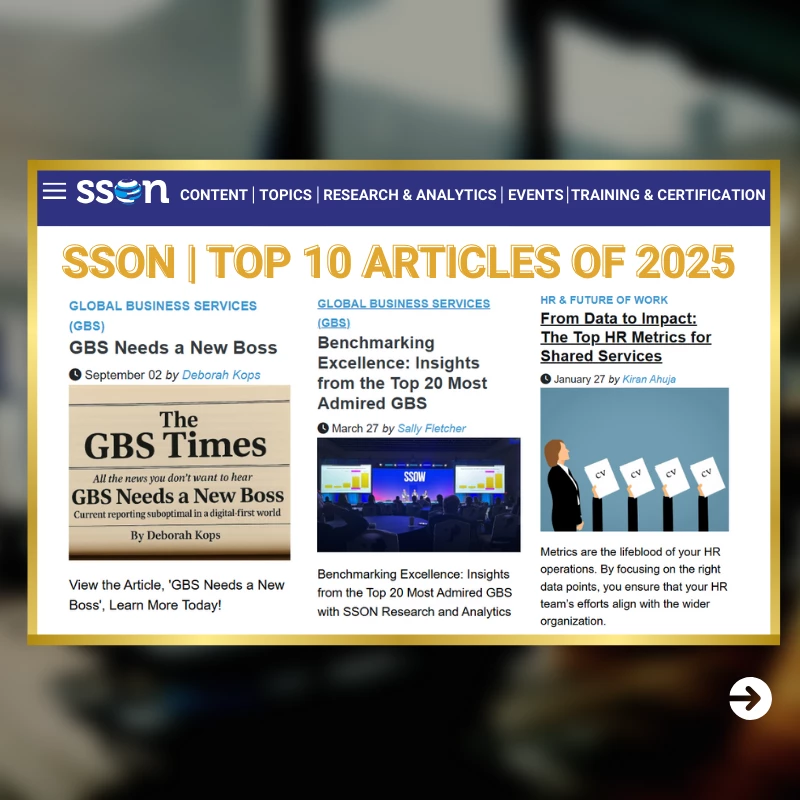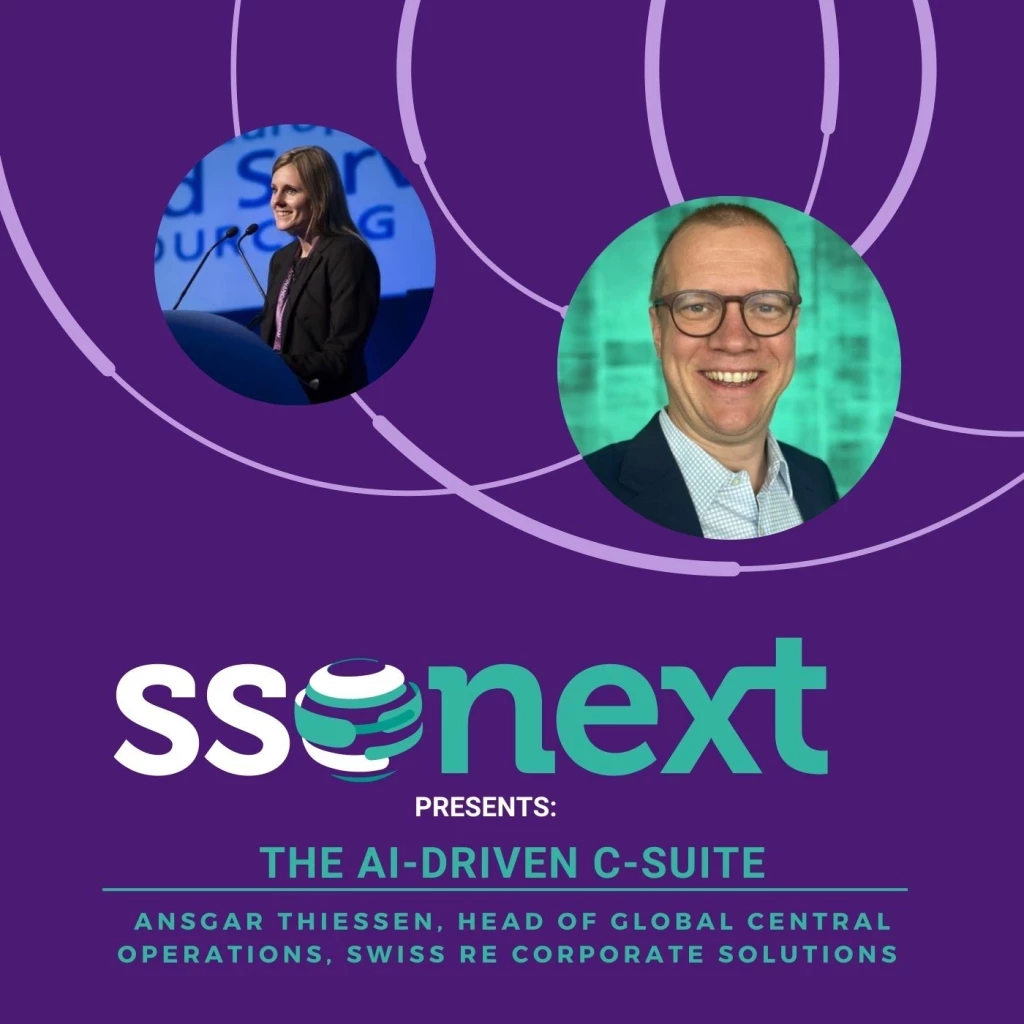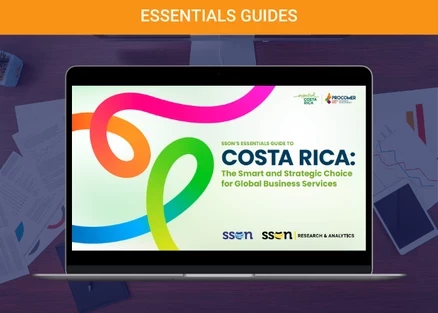Dragon’s Den for Global Business Services: Innovation Meets Interrogation at SSOW Europe 2025
Add bookmark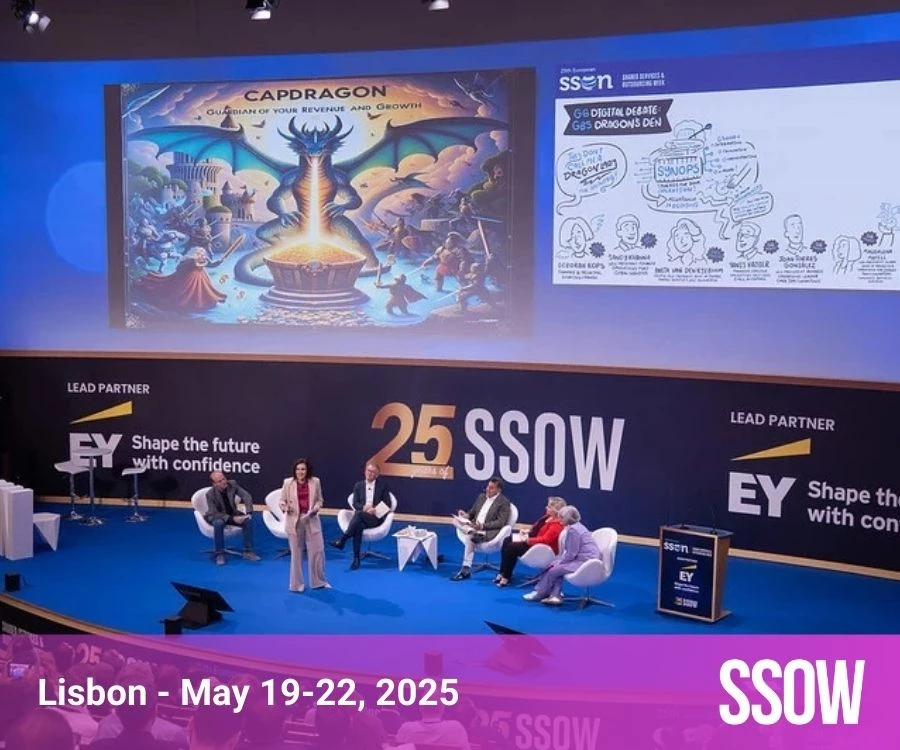
Dragon’s Den for Global Business Services: Innovation Meets Interrogation at SSOW Europe 2025
The G6 Debate is consistently one of the most hotly anticipated and best attended sessions at Shared Services and Outsourcing Week. It serves as a rare chance to put Business Process Outsourcers to the test and pit them against each other to see who is the most innovative and who performs the best under pressure. Structured in the style of Dragon’s Den, this year’s Lisbon panel gave leading service providers just five minutes to showcase their most innovative digital platforms before facing a panel of Global Business Services “dragons.”
The Judges: A GBS Powerhouse:
The dragons included some of the most respected names in GBS:
Deborah Kops, Founder and Principal, Sourcing Change
Sandy Khanna, VP Finance Operations, Mars Global Services
Aneta van den Kieboom, SVP, Head of Global Shared Services, RHI Magnesita
The Panelists:
Yanis Vadier, MD Operations Sales, Accenture
Magdalena Matell, VP, Global Head of Projects & Consulting for Finance Transformation, Capgemini
Joan Torres González, VP Business Operations Leader EMEA, IBM Consulting
Each provider pitched how they were adopting AI to provide value for their clients.
Accenture’s SynOps: A Layered Approach to Intelligent Operations
Yanis Vadler introduced SynOps, Accenture’s multi-layered platform designed to elevate GBS from transactional execution to strategic business partnership. Using the metaphor of a millefeuille, Vadler described its layered architecture: experience, third-party integration, hyperautomation, data insights, orchestration, foundation, and integration. “The idea is to simultaneously plug into your existing tech and data ecosystem while enabling intelligent orchestration,” he explained.
Vadler stated that a considerable number of clients are already leveraging SynOps, with the cost of implementation embedded into the business case. However, Sandy Khanna expressed concerns around vendor lock-in probing whether clients could easily exit the platform once integrated. Vadler responded, “There’s a reverse option, but the value generated usually makes customers want to stay.” SynOps is now evolving with more Agentic AI functionality, appealing to visionary clients both large and small.
Capgemini’s Capdragon: Guardian of Revenue Assurance
Next up, Magdalena Matell unveiled Capdragon, Capgemini’s Agentic AI-powered platform designed to protect and grow revenue through intelligent analytics. With an end-to-end view of the value chain, Capdragon identifies billing errors, uncovers automation opportunities, and reduces bad debt.
“One client reduced bad debt by €5 million and maintained near-perfect billing accuracy,” said Matell. Despite its effectiveness, adoption is selective—fewer than 10 clients currently use Capdragon due to its data-readiness requirements. The platform integrates technologies like Blackline, HighRadius, and Xelix, emphasizing a blended approach over a purely AI-led one. Excitingly, Mattell revealed that pricing is outcome-based, and Capgemini only charges once measurable value is delivered (mitigating customer risk). However, as Khanna pointed out, clients need to be prepared for complex change journeys, especially with legacy processes in play.
IBM Consulting’s Agentic Platform: Built for Scale, Powered by Value
Joan Torres González showcased IBM’s Agentic automation platform, supported by its recognition as a 2024 Gartner Magic Quadrant leader in F&A Automation. He shared a compelling case study of a long-term IBM client achieving $50+ million in savings. The company, previously handling over 100,000 finance queries monthly, implemented IBM’s Agentic collections platform which resulted in halving query resolution time and unlocking $100 million in cash flow gains. “Now over 40,000 employees are empowered by the tool—freeing up GBS to focus on higher-value work,” said González.
The platform currently serves 250 clients, with 15 actively scaling the showcased use case. It integrates seamlessly into existing systems and is available either as part of BPO services or standalone. The pricing model flexes to meet outcomes, typically delivering 25–60% cost reduction.
Key selling points included its controlled AI outputs, personalized query responses without “hallucinations” and its focus on relationship-driven transformation.
Final Takeaways: Outcome-Driven, AI-Powered, Human-Led
Despite a final win from IBM (which was later echoed by their SSON Impact Awards Win), all three contenders gave powerful stories. From AI orchestration to revenue assurance and scalable automation, the panel underscored the shift from platform selling to value co-creation. All three providers emphasized:
- Agentic AI as the future of both outsourcing and GBS.
- Moving to Outcome-based pricing to share both risk and reward with the customer.
- Platform integration working within, not against, existing tech stacks.
- The importance of Client readiness, including data quality, vision, and change appetite.
To learn more from GBS leaders and BPO’s alike, check out our next SSOW event in Amsterdam.


